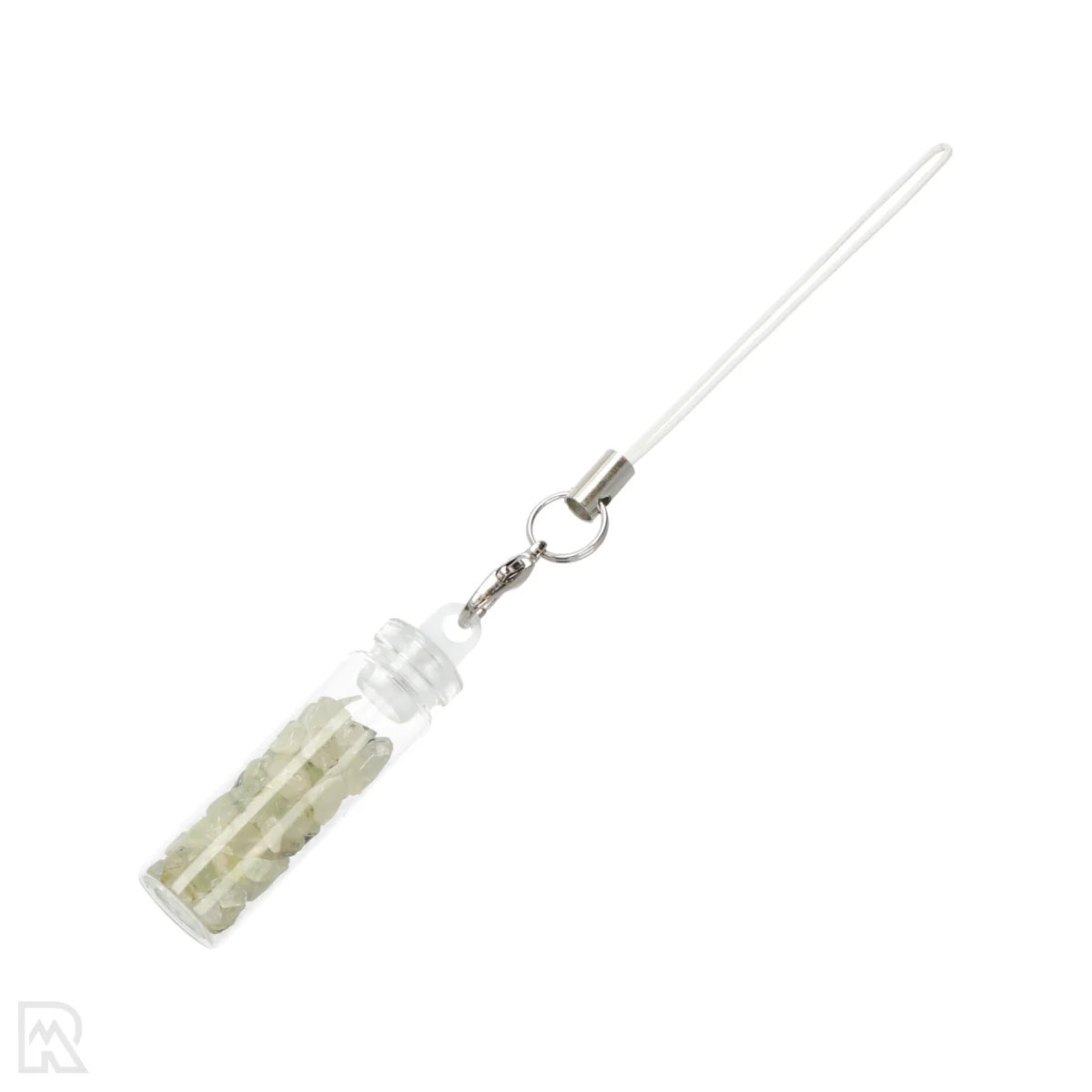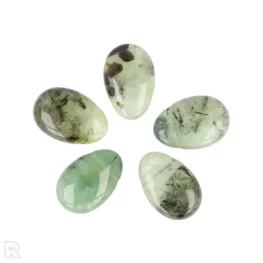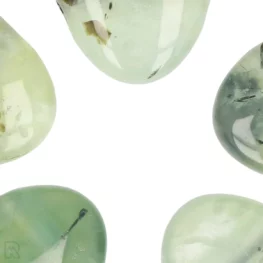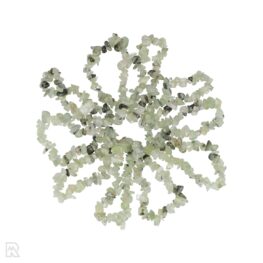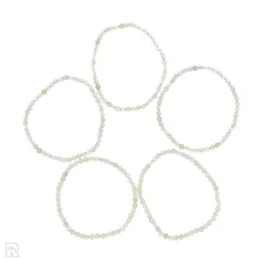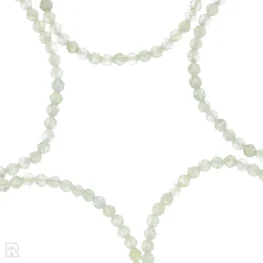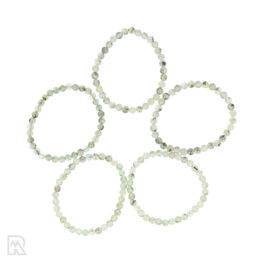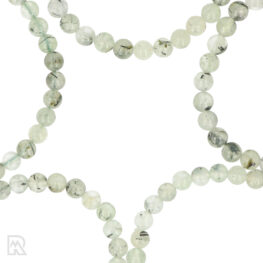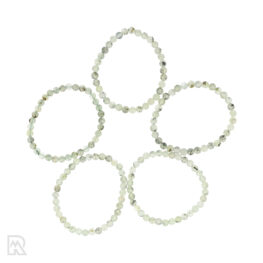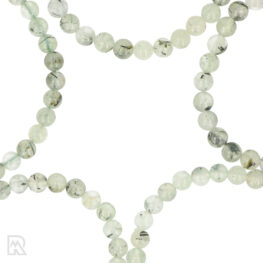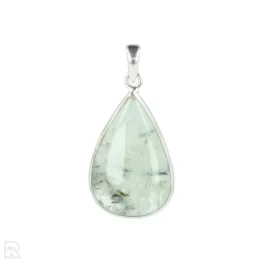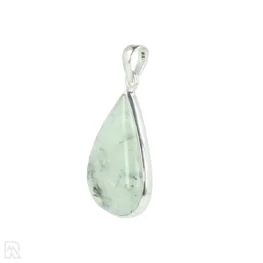| Gewicht | 0,05 kg (50 gr) |
|---|---|
| Dimensions | 1,1 × 1,1 × 3,5 cm |
| Sales Unit | |
| Type | |
| Form | |
| Origin | |
| SKU | 5856 |
Prehnite Lucky Bottle
Prehnite Lucky Bottle from China
Prehnite
Prehnite is a pale green to yellow-green mineral that often occurs in rounded, spherical aggregates or as crustal deposits. It has a glassy to pearly luster and is partly translucent. The colour is usually caused by traces of iron. Prehnite is sometimes used as a gemstone and is popular among collectors because of its distinctive appearance.
The mineral was first discovered in South Africa and is named after the Dutch colonel Hendrik von Prehn. Major deposits can be found in South Africa, Australia, Scotland, the United States and China. Prehnite usually forms in cavities of volcanic rocks and is a product of hydrothermal processes. Its chemical formula is Ca₂Al(AlSi₃O₁₀)(OH)₂ and its hardness is between 6 and 6.5 on the Mohs scale.
Sources:
Mindat.org, Gemdat.org, Wikipedia - Prehnite
Selenite
Selenite is a clear to translucent variety of the mineral gypsum (CaSO₄-2H₂O). It is known for its glassy to pearly luster and often fibrous structure. A common form is selenite, which has a silky luster and occurs in long, fibrous crystals. Despite its name, selenite has nothing to do with the element selenium; the name is derived from the Greek word for moon, because of its soft luster.
Selenite forms in sedimentary environments during the evaporation of seawater and is found in countries such as Mexico, Morocco, the US and Australia. It is a soft mineral with a hardness of 2 on the Mohs scale, making it easy to work by hand. Almost all selenite sold on the Dutch market is satin spar; however, selenite is a market-accepted sales name.
Sources:
Mindat.org, Gemdat.org, Wikipedia - Selenite
